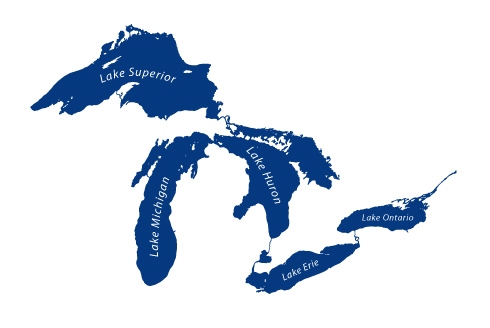U.S. and Canada want to reduce runoff by 40 per cent
By Diego Flammini
Assistant Editor, North American Content
Farms.com
According to a new study by the University of Michigan Water Center, reducing phosphorous runoff into Lake Erie could be enough to prevent outbreaks of dangerous algae, but would require significant changes to farms in the region.

The study found that in order to keep Lake Erie from developing algae blooms similar to the ones in 2014 which left more than 400,000 people in Toledo, Ohio and parts of Michigan unable to use tap water and caused fish to die, phosphorous runoff would have to reduce by about 40 per cent – a figure decided upon by the Canadian and U.S. governments last month.
Other findings in the study reveal that a large amount of cropland would have to be converted into grassland and farmers would need to increase their fertilizer-management practices to meet the needed requirements.
One testing scenario suggested as many as 30,000 acres would need to be converted to grassland, affecting more than 6,000 farms in the process.
“Our results suggest that for most of the scenarios we tested, it will not be possible to achieve the new target nutrient loads without very significant, large-scale implementation of these agricultural practices," said the study’s lead author Don Scavia in a release.
Researchers tested various combinations of best-management practices to bring the algae under control.
Jay Martin from Ohio State University, a co-author of the study, said some scenarios provided optimism.
"The most promising scenarios included widespread use of nutrient management practices — especially subsurface application of phosphorus-based fertilizers — along with substantial conversion of cropland to grassland and extensive use of buffer strips,” he said.